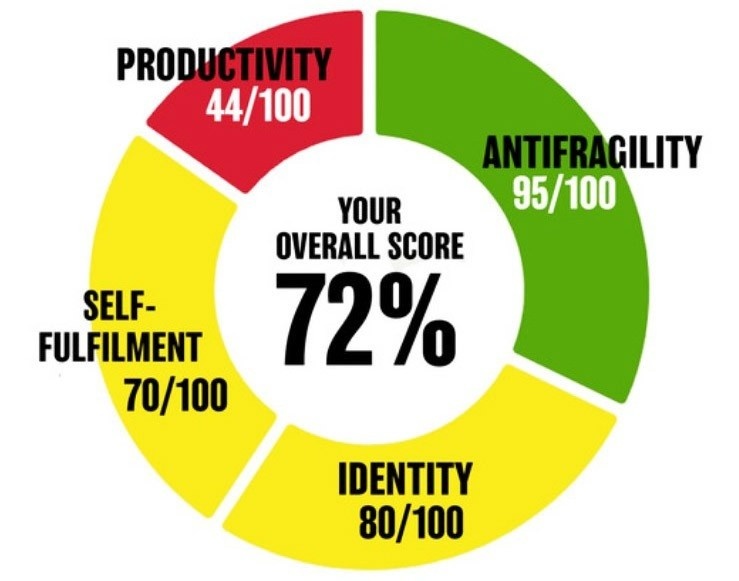Timeboxing: Elon Musk’s Time Management Method // Elon Musk is notoriously known for his insane work ethic, clocking around 80 to 100 hours per week. Want to know his time management secret? Timeboxing. Elon Musk’s schedule is precisely planned and perfectly executed for incredible productivity, using an efficient time blocking method and relying on the fundamentals of Parkinson’s Law. In this video, peak performance expert and coach, Eric Partaker, explains Elon Musk’s daily schedule tool, so you can plan your day, get more done, stop procrastinating and reach your full potential.
KEY POINTS
What Is Timeboxing? – It Is the practice of setting a specific amount of time to work on tasks, then integrating those blocks of time into your schedule in your calendar.
What Is Parkinson’s Law? – Work will expand to fill the time given for its completion. If you give yourself 3 hours to complete a task, you will take 3 hours. If you give yourself 3 days it will take 3 days. Think about this when setting time for tasks. Get more done in less time!
Think Proactively – At the start of each day look at each task you need to get done and assign an amount of time to complete it. Then hold yourself accountable to completing that task within the given time frame.
Give Yourself Buffer Time – When you complete a task for the first time set yourself a goal for how long you aim to take to complete it. Then add 20% – 30% extra to give yourself a buffer so you can develop an understanding of how long it takes to complete certain tasks.
Bunch Small Tasks Together – Don’t drip feed yourself lots of small tasks throughout the day. Group small activities together into a single block. Your efficiency when completing the tasks will greatly improve.
Do You Single Task? – Minimize your distractions and make sure notifications are turned off on various apps, and that your phone is out of sight. Ensure you are focusing only on the task at hand.
TRANSCRIPT
Eric Partaker: Hey, everyone. Today, I’m going to break down Elon Musk’s secret to time management so that you can become a productivity master. You may have heard that Elon Musk works up to 80 to 100 hours a week, and I’m certainly not suggesting that you work that much, but if you could be as productive as he is in just 40 hours a week, you could definitely achieve a lot more in business and life.
Hi, my name is Eric Partaker and I’ve been recognized as the CEO of the year, and I’m also the author of two best-selling books, including The 3 Alarms. So what is the technique? It’s called timeboxing, and it’s the practice of setting a specific amount of time that you plan to work on each task, and then integrating those blocks of time into the schedule of your calendar, into the free space that you have in your calendar, outside of any meetings or things that you’re doing with other people. And timeboxing incorporates Parkinson’s law, which says that work will expand to fill the time given for its completion.
And we’ve all experienced this. If you give yourself, for example, three hours to complete a task, or a presentation or a piece of work, guess what? It’s going to take three hours. If you give yourself three days, you’ll probably take three days to do it. But can you remember those moments when suddenly you forgot to do something or had put it off too long and you only had maybe 30 minutes to do something that you originally would’ve maybe dedicated five hours to, and then somehow still in the end you get it done? And that’s Parkinson’s law in action, that work will expand to fill the time given for its completion.
So once again, if you give yourself… You have three hours to complete something, it will take three hours. If you give yourself one hour, you’ll get it done in one hour. And this is incredibly powerful because we can harness this law. We can harness this in our work and in our lives so that we can get more done with less time. I’ll tell you a story. I remember historically, I always would take far too long to type up summary notes from meetings, and in particular, we had this monthly meeting that we always did at a company that I worked with in the past and I would always put off the write-up of these notes because I knew they’re going to take so long, simply because I would give myself so much time to do the notes, and I would typically want to allocate three hours to write up all the meeting notes.
And I remember this particular instance where I knew I had a call to do at 6 PM and it was 5:39, I remember. And I thought to myself, “I have 21 minutes. Can I type up these notes and get them out before that call in 21 minutes?” And I couldn’t believe it, instead of taking three hours to get the notes typed up, I literally was able to type them up in just 21 minutes, press send and I was on the call. And that always has stuck in my mind that I can massively compress the amount of time that I’m working on something and still get a good result, but I have no chance to do it unless I put a box around that. And that phone call that I had to make at 6 PM, together with that start time in the moment, that was the box, that was the 21 minutes that I had.
What Elon Musk does is that he does this proactively. So I was reacting in the moment to the only amount of time that I had left, but he is proactively, at the start of his day, he’s looking at each task that he needs to do and he’s assigning an amount of time to get it done in. Okay, so I’m going to go into my email and I’m going to put 15 minutes against that. I’m going to complete this research in 30 minutes, and so on, and so on, and so on. And then he puts those blocks into his calendar and then holds himself to completing the tasks in the time that he has allocated. Why? Because Parkinson’s law states that work will expand to fill the time given for its completion, and obviously he’s experiencing that as well.
So that’s the general concept. At the start of the day, figure out what it is that I need to do, list out those tasks, assign times to those tasks and then put those blocks of time, schedule them, drop them into your calendar. Now, it’s not just a matter of doing that though, because you also then need to obviously keep an eye on the time and measure your progress. Are you actually staying on track as you had planned or are you falling behind? Can you make up the time then in that instance? How can you stay on track? Because what you don’t want is to completely miss, for example, your first block of time there, and then have that cascade throughout the rest of the day.
So what I would suggest you do when you’re learning this practice is to give yourself some buffer time. So however many minutes that you’re assuming that you’re going to get a task done in, add an extra 20% or 33%, at least in the beginning, to give yourself a little buffer so that you can develop an understanding of how long does it actually take for you to get certain activities done.
And another clever thing that you can do is when you have a whole bunch of little things that you need to do, such as respond to two emails, pick up a voicemail, return a call and check your post, well, all those little bitty things, try to group them all together in a single time block and give it a single amount of time to get that done, rather than having that stuff kind of drip fed throughout your day, because when that happens, it’s very, very distracting, and when we become distracted, we become less efficient.
So the other thing, though that you need to focus on is even though you have your time blocks set and you know the number of minutes that you’re going to be working on a particular task or thing, you also need to make sure that you’re actually single tasking so that you’re just focused on that. The simple thing that you can do there is to just minimize your distractions and make sure notifications are turned off on various apps, that your phone is out of sight, out of mind. Turn it off, for example. Put it in another room. You’ll be amazed at how much more you get done when you don’t have all of these devices or notifications around you constantly competing for your attention or simply distracting you.
Now, why should you focus on single tasking? Well, aside from it giving you the best chance of actually getting the timeboxing habit and these blocks of time installed correctly, aside from doing that, there’s also some very compelling data and reasons why you should do this just from a general productivity and life point of view. So there’s some startling research which shows that the average person loses 28% of their workday by not single tasking.
What do I mean by that? Instead of working on one thing at a time as is required when you’re using this Elon Musk technique, instead of doing that, they jump from task to task. And look, we’ve all been there. I’m sure you’ve sat down… You sit down, for example, the start of your day, it’s nine o’clock, you open up your inbox and you’re in your email for a few minutes, and now it’s 9:07 and suddenly you’re checking Slack or some other collaboration tool, and then you’re in there for four minutes, and then you’re back to your email and then you’re thinking, “Hmm, you know, maybe I should research this thing on the net real quick.”
And so you research something on Google very, very quickly, and then before you know it, you look at the clock and it’s 9:47 now, and you’re like, “Gosh, I don’t have any time now to do what I had planned to do in this first hour. I only have 13 minutes before a phone call,” and then you think, “Oh, well, I need to have a fresh cup of coffee for that call,” so then now you go downstairs and you reheat your coffee. And look, the end result is, because you’ve been jumping around from one thing to the next so much, you don’t get the things done that you want to get done, and often that can feel like you’re hanging on to the back of a train and you’re not actually in control of your day. You get to the end of the day and you sit there thinking, “Gosh, where did the day go? I don’t feel like I’ve won this day at all.” And that’s because you weren’t single-tasking.
So it’s not just a matter of using this technique, this timeboxing or creating these blocks of time. It’s not just a matter of doing that. It’s also a matter of actually showing up then at the schedule times and making sure that you single task. Because going back to the compelling data point that I referenced earlier, when they observe people throughout the day, jumping around, as a typical person does from one task to the next, that leads to a loss of about 28% of their day.
Because think about it, when you start working on something, if you jump around to a bunch of different things, when you return to what it was that you originally intended to work on, you often have to retrace your steps, you have to regain your momentum, not to mention that the things that you switched yourself to, the things that you started to work on outside of that may have been completely meaningless things that you shouldn’t really be doing. So you’re losing all of that time as well.
When they add all of that up, it leads to a 28% loss in the day. But if you extrapolate that number across a year against the number of work weeks in a year, 28% loss of all the work weeks in a year, it means that the average person loses 13 weeks a year. 13 weeks, 52 divided by four, 13 weeks, that’s an entire calendar quarter. So the average person is losing an entire quarter every year, or if we extrapolate that up to a career, a 40 year career, the average person loses an entire decade. That’s like two more careers.
So there is so much in this method, and there’s so many reasons to do it, and it will not only make you more productive, but the final point that I’m trying to make is that it will also add 13 weeks a year back to your life, which you can use for work, for pleasure. Over a career, it’ll add another decade, and could you use another decade? Would you feel less stressed and more productive if somebody said every single year, “Here’s an extra 13 weeks,” or over a career, “Here’s an extra decade”? Of course you would feel better. Of course you would feel more productive. Of course you would feel like you were a productivity master. You’re literally picking up all that extra time.
Here’s another way to think about it, another fun way to think about it. Like, if we were playing a game of basketball, and I’m a team, you’ve got your team, and you get to the third quarter and then I say to you, “Oh no, you can’t play the fourth quarter. You and your team have got to sit out.” And you’d be like, “What the hell? Like how do I have a chance? We have no chance of winning.” And I’d be like, “No, you don’t. You have no chance, sorry.”
So it’s so uncompetitive to live your life not using these techniques, not trying to single task, not trying to use that Elon Musk method of timeboxing and assigning units of time to each task, and then putting those blocks into your calendar. You make yourself incredibly uncompetitive by not doing these things because as a result, you lose an entire calendar quarter. So you’re playing the game of life, you’re playing the game of business with only three quarters in your year, instead of four. You don’t have a chance competitively if you do that.
And I’d love to hear from you, so don’t forget to leave a comment and a rating as well. And if you’d like to get a copy of my new book, The 3 Alarms, please head over to my website at ericpartaker.com. That’s E-R-I-C, ericpartaker.com, where you can pick up a free digital copy of my new best-selling book, The 3 Alarms.




